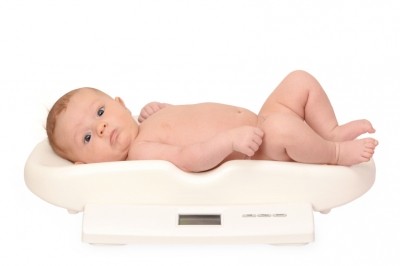Nestlé makes moves on pregnancy probiotics

The patent, filed through Nestlé’s research arm Nestec, claimed the probiotic strains Lactobacillus rhamnosus GG and Bifidobacterium lactis BB12 combined with myo-inositol – a form of the sugar alcohol inositol – could minimise excessive fat storage in a pregnant subject or a woman hoping to get pregnant.
The company said such a product could help treat or prevent gestational diabetes mellitus and associated conditions in the mother and child if taken before or during pregnancy or lactation.
The filing followed a previous patent for a probiotic product last year, which the company claimed could help reduce the risk of allergies for children if taken by the mother during pregnancy and lactation.
This international patent referred to two combinations of probiotics: Lactobacillus Rhamnosus and Bifidobacterium Longum or Lactobacillus paracasei and Bifidobacterium Longum.
Resisting complications
Hormone changes during pregnancy lead to increased insulin resistance and a higher glucose plasma concentration – changes that help transfer nutrients from mother to foetus.
Ordinarily increased insulin resistance and higher glucose plasma concentrations are counteracted by increased insulin production in the mother.
However, some women are unable to produce enough insulin to counteract the changes and this can result in their development of gestational diabetes mellitus.
The condition can increase the risk of complications including premature delivery as well as the risk of developing diabetes later in life for both the mother and child.
Last year a Cochrane review of four small randomised controlled trials involving a total of 567 women concluded myo-inositol as a pregnancy food supplement showed “promise in preventing gestational diabetes" but added there was not enough evidence at that stage to support its routine use.
The reviewers called for larger high quality studies to build on promising initial findings of low quality studies.
One such study found myo-inositol was associated with a reduced gestational diabetes incidence from 28% in women who did not take the supplement, to between 8% and 18% in those who took it.
Investing in probiotics
A spokesperson for the company said the investment reflected Nestlé’s belief that good maternal nutrition during pregnancy has a beneficial effect on infant development and the risk of pregnancy complications and metabolic diseases in the infant.
“Probiotic supplementation of women during the perinatal period is considered a safe and promising strategy to promote a healthy pregnancy - by positively modulating the gut microbiota and intestinal permeability, as well as maintaining immune and metabolic homeostasis,” the spokesperson told us.
There are currently no approved health claims for these health effects in the European Union.
Indeed the term 'probiotic' is banned on food supplements as it is considered an implied unauthorised health claim under EU law.
Source: WIPO Publication No. WO2016020495
Published: 11.02.2016 Filed: 06.08.2015
“Myo-inositol and one or more probiotic and use thereof”
Authors: Nestec SA – I. Silva Zolezzi, C. Mace, K. M. Godfrey, P. N. Baker and Y. S. Chong








